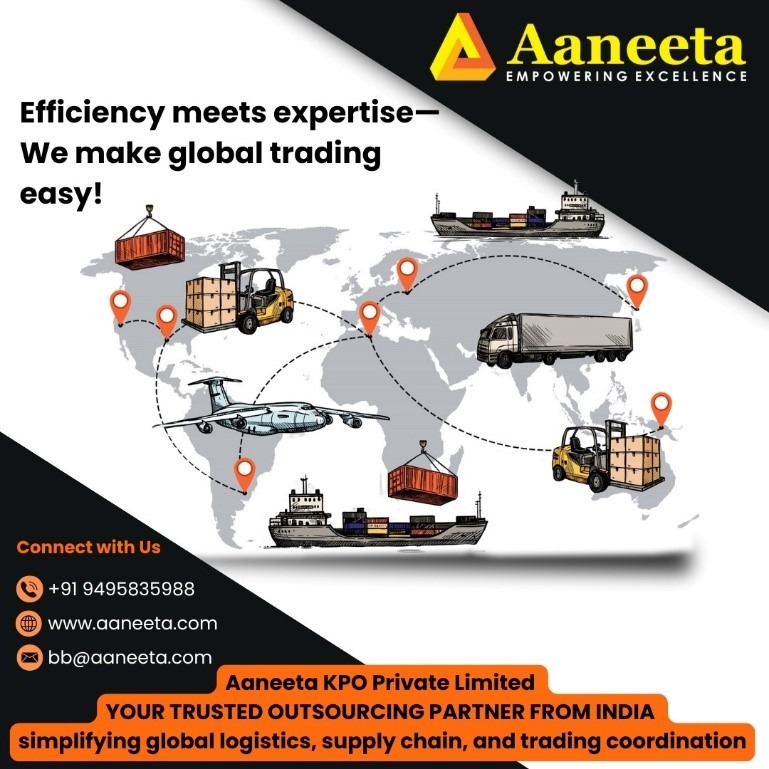Global trade has long been a driving force behind economic expansion and innovation, connecting markets and enabling businesses to access new opportunities. However, the process of navigating global logistics, supply chains, and compliance requirements is fraught with challenges that demand careful planning and strategic execution. To remain competitive, companies must embrace modern solutions to address these complexities and streamline their operations effectively.
The complexities of global trade include navigating intricate logistics networks that often involve multiple modes of transportation, such as air, sea, and land freight. Coordinating these networks to ensure timely deliveries while minimizing costs can be highly challenging. Additionally, supply chain disruptions caused by factors like natural disasters, geopolitical tensions, or pandemics often result in delays and increased costs. Businesses must also contend with varying international trade laws, customs requirements, and documentation standards, which add another layer of difficulty. Rising operational costs, influenced by fluctuating fuel prices, labor expenses, and tariffs, further strain businesses engaged in global trade. Finally, there is growing pressure to adopt sustainable practices, as both consumers and governments demand eco-friendly operations across supply chains.
To address these challenges, businesses are increasingly turning to advanced logistics solutions. By leveraging technologies like AI-driven freight optimization tools, real-time tracking systems, and automated warehouse management, they can enhance operational efficiency and reduce costs. Implementing end-to-end visibility in supply chains enables proactive decision-making and risk mitigation, while tools such as blockchain technology provide enhanced transparency and accurate data at every stage. Many businesses also choose to collaborate with third-party logistics providers or outsource supply chain management to experienced partners, allowing them to focus on their core operations.
Staying updated on international trade regulations and employing compliance experts is crucial for ensuring smooth customs clearance and avoiding penalties or shipment delays. Additionally, adopting sustainable practices, such as optimizing transportation routes, investing in green technologies, and utilizing renewable energy in warehousing, helps businesses meet environmental goals while appealing to environmentally conscious consumers.
Streamlining global trade brings numerous benefits. Efficient supply chain management and optimized logistics significantly lower operational expenses, contributing to improved profit margins. Faster deliveries and reliable service enhance customer satisfaction, fostering long-term loyalty and trust. Streamlined operations also allow businesses to scale their trading activities seamlessly as they expand into new markets. Proactively addressing potential supply chain disruptions ensures business continuity and protects against financial losses. Furthermore, adopting innovative strategies to simplify global trade positions businesses as leaders in their industry, providing a competitive edge.
Looking to the future, several trends are set to shape global trade. The digital transformation of trade operations through technologies like the Internet of Things (IoT), artificial intelligence, and big data analytics is expected to revolutionize the industry. Sustainability-focused supply chains are becoming the norm, as governments and consumers prioritize eco-friendly practices. Building resilient supply chains by diversifying sourcing, utilizing local suppliers, and adopting predictive analytics will be a key focus for businesses. The continued rise of e-commerce platforms is reshaping global trade, requiring businesses to adapt their logistics and distribution strategies to meet the demands of cross-border online shoppers. Additionally, blockchain technology is poised to enhance transparency, reduce fraud, and streamline documentation processes in international trade.
Global trade plays a vital role in driving economic growth and innovation, but its complexities require businesses to adopt forward-thinking strategies. By leveraging technology, optimizing supply chain management, and prioritizing sustainability, companies can navigate the challenges of international trade effectively and thrive in a competitive landscape. Embracing these approaches ensures not only operational efficiency but also long-term success in the ever-evolving global marketplace.



